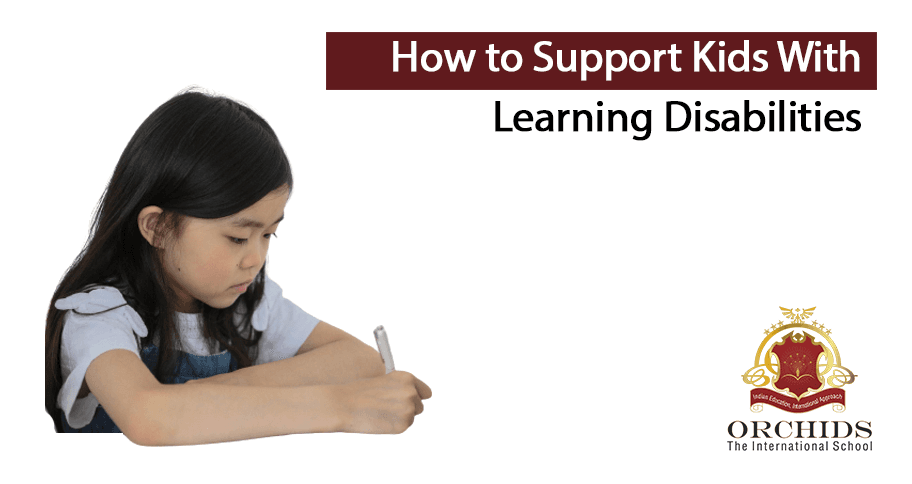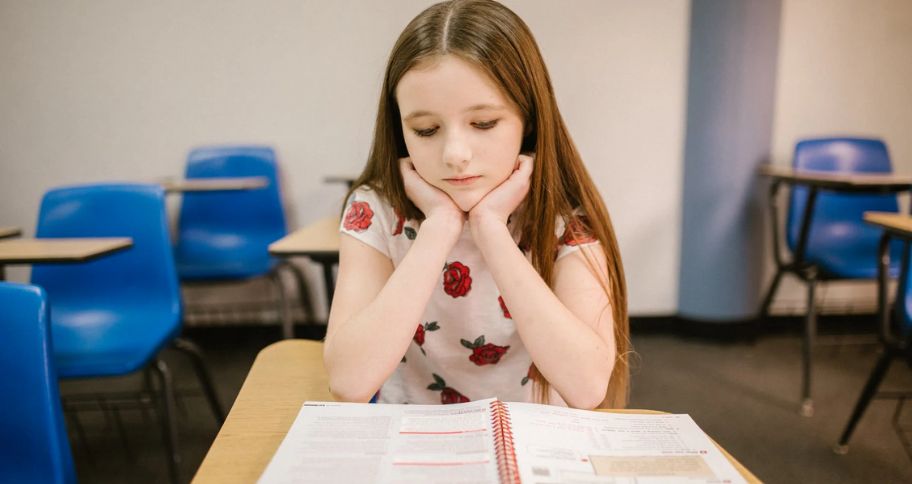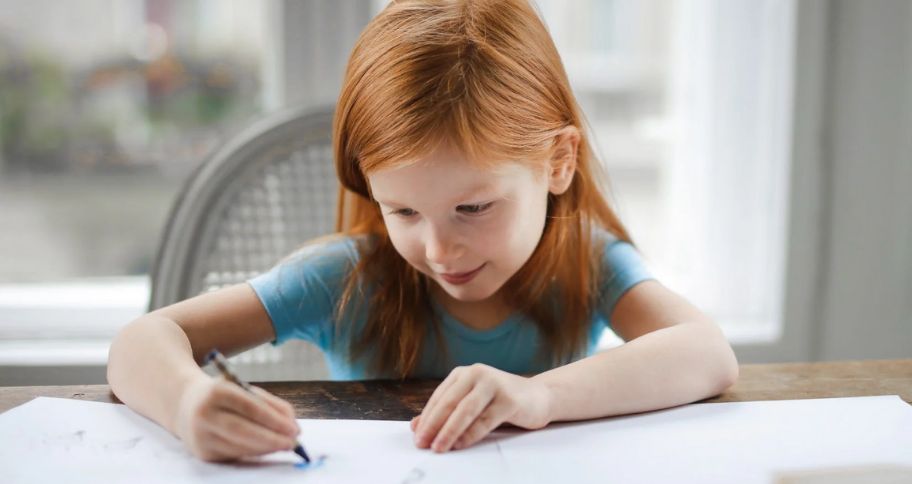How Can Parents Teach Kids with Learning Disabilities to Be Successful?
By Swastika Jana |
Date 05-09-2023

Table of Contents
Admissions Open for
Introduction
If you are reading this blog, the chances are that you are already aware of what learning disabilities are. And want to learn how to teach yourself and your kid effective ways to live a stress-free life despite that. To reiterate, learning disabilities are genetic/neurological conditions that affect learning and cognition in humans. This can show up as an inability to pronounce certain words, a problem with numbers, or a lack of motor coordination.

In India, the awareness and identification of learning disabilities have been very recent. However, as per the Indian Tribune, around 15% of all school-going kids in India have dyslexia. The majority of cases of LD are brushed off as laziness or stupidity, resulting in millions of kids living undiagnosed. Having an LD affects not only a child’s academic performance but also their everyday interpersonal relationships.
Teach Kids Subjects in a Way That Suits Them
By nature, it’s a universal understanding that children are restless, easily distracted, and irritable when learning, especially in school. So, it’s not uncommon for parents to face issues while teaching kids to talk. They will also prefer playing instead of writing or dozing off.

The signs of learning disabilities manifest in every child differently; thus, not everything will apply to a single child. However, some of the most common symptoms that children usually show, depending on their age, are:
Preschool
- Has difficulty pronouncing words
- Trouble finding the right word
- Has issues with rhyming words
- Difficulty when you teach alphabets, shapes, numbers, colors
- Extremely restless and easily distracted.
- Have difficulty following orders or routines
Elementary school
- Have trouble associating letters with their sounds
- Confuses basic words while reading and writing
- Prone to spelling errors, mainly by reversal and substitution of letters/words with similar sounds or appearance
- Difficulty with basic math
- Trouble learning about time, number sequences, or distance
- Slow to learn new skills
- Poor coordination
- Unstable grip on a pencil or illegible handwriting
- Reckless or impulsive behavior
Middle school
- Poor reading comprehension
- Spells the same word differently within a single answer
- Trouble with open-ended or long word problems
- Avoids reading out loud
- Mixes up prefixes and suffixes of words frequently
- Poor handwriting and poor grip on pen and pencils
- Cannot recall facts easily
- Hard to remain still and focus on anything
- Difficulty making friends
The main differences between behaviors and disabilities are that the latter is consistently present and includes multiple signs. In addition, it’s not just limited to children. Since these are incurable conditions, many times, people in high school or college realize that they have had specific learning disabilities after proper evaluation.
Teach Kids to Live Life According to Their Needs
There is no particular age for recognizing learning disabilities in a child. Although early diagnosis and treatment certainly make life much easier to live. In a country like India, where mental illness or any neurological condition is treated as taboo, a parent might not want to accept that her kids might have a disability. It is not uncommon to see kids being called slow, stupid, dumb, or even lazy when they cannot keep up with their peers. It’s not that the kids are any less smart; it’s just that regular school teaching facilities and coursework isn’t designed to support their disabilities. With proper intervention, kids with learning disabilities have shown 100% better results, both in academics and personal life.
Recently, there has been a massive increase in people’s awareness of disabilities, both physical and mental. As a result, a frequent question among young and soon-to-be parents is what to do if they think their child has a learning disability. Before we go through various measures and options, it’s important to note that your kids learning disability might make them a subject of ridicule in school. Thus, both the child and the parent need to understand that having a learning disability does not make a child inferior or dumb. It’s just that their brains are wired differently than others when it comes to receiving and processing information. They just need a little extra help and support. And you can achieve that by teaching your child and yourself how to deal with it.
How Do You Teach Your Kid with Learning Disabilities How to Support Themselves?
Early Intervention
A common mentality of parents is to “wait for them to grow out of it.” The best thing you can do for your child is to consult a child psychologist or psychiatrist and get them evaluated as soon as possible. Early intervention would make sure that their weakness doesn’t impede your child’s future, and they can easily keep up with their primary teaching.
Consultation and evaluation
A proper consultation from a psychiatrist leads to an effective diagnosis of a child’s learning disability. A parent can then proceed to make arrangements/changes according to the specific necessity of a kid.
Accommodations for learning disabilities

Lastly, it’s up to the parent to research and figure out the best support system for their child. Since none of the LD is similar, each child requires a different set of assistance. For example, a kid with ADHD might be best suited to medication and therapy, whereas someone with dyslexia might benefit from a reading specialist. Advanced technology is also a boon when it comes to children with LD. For example, in a classroom, the teaching methods can be less focused on numerical, or the child can have extra time or perhaps use audiobooks for better comprehension.
Having a learning disability doesn’t mean your child is broken, unlike what society thinks. It might seem like the future of your child looks bleak, but rest easy. Once you learn the specifics of their disability, you can find many resources and solutions to help your child be the best version of them in the future. You just need to ask yourself, what matters most? Your child’s ability to live a fulfilling life with good relationships or short-term academic achievements.
Also read..
6 Signs that your kid might have a learning disability
5 Ways to Deal with Your Kid’s Homework Challenges
Anorexia In School Going Kids – Causes, Symptoms & Treatment
CBSE Schools In Popular Cities
- CBSE Schools in Bangalore
- CBSE Schools in Mumbai
- CBSE Schools in Pune
- CBSE Schools in Hyderabad
- CBSE Schools in Chennai
- CBSE Schools in Gurgaon
- CBSE Schools in Kolkata
- CBSE Schools in Indore
- CBSE Schools in Sonipat
- CBSE Schools in Delhi
- CBSE Schools in Rohtak
- CBSE Schools in Bhopal
- CBSE Schools in Aurangabad
- CBSE Schools in Jabalpur
- CBSE Schools in Jaipur
- CBSE Schools in Jodhpur
- CBSE Schools in Nagpur
- CBSE Schools in Ahmednagar
- CBSE School In Tumkur

Call Us to know more about Orchids
Swipe Up

.jpg&w=1920&q=80)














